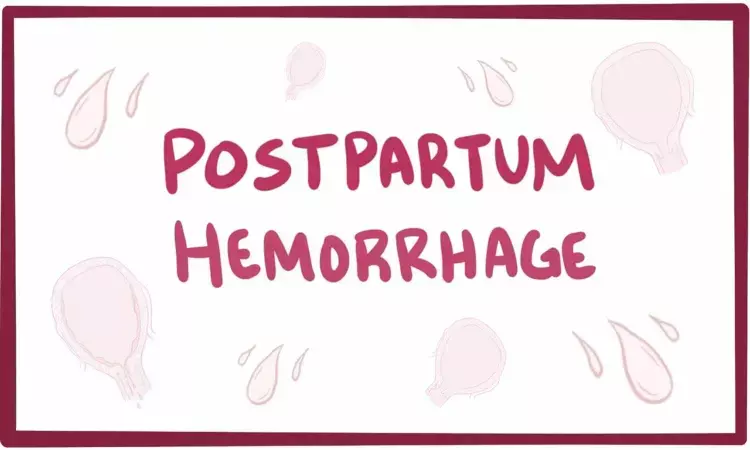- Home
- Medical news & Guidelines
- Anesthesiology
- Cardiology and CTVS
- Critical Care
- Dentistry
- Dermatology
- Diabetes and Endocrinology
- ENT
- Gastroenterology
- Medicine
- Nephrology
- Neurology
- Obstretics-Gynaecology
- Oncology
- Ophthalmology
- Orthopaedics
- Pediatrics-Neonatology
- Psychiatry
- Pulmonology
- Radiology
- Surgery
- Urology
- Laboratory Medicine
- Diet
- Nursing
- Paramedical
- Physiotherapy
- Health news
- Fact Check
- Bone Health Fact Check
- Brain Health Fact Check
- Cancer Related Fact Check
- Child Care Fact Check
- Dental and oral health fact check
- Diabetes and metabolic health fact check
- Diet and Nutrition Fact Check
- Eye and ENT Care Fact Check
- Fitness fact check
- Gut health fact check
- Heart health fact check
- Kidney health fact check
- Medical education fact check
- Men's health fact check
- Respiratory fact check
- Skin and hair care fact check
- Vaccine and Immunization fact check
- Women's health fact check
- AYUSH
- State News
- Andaman and Nicobar Islands
- Andhra Pradesh
- Arunachal Pradesh
- Assam
- Bihar
- Chandigarh
- Chattisgarh
- Dadra and Nagar Haveli
- Daman and Diu
- Delhi
- Goa
- Gujarat
- Haryana
- Himachal Pradesh
- Jammu & Kashmir
- Jharkhand
- Karnataka
- Kerala
- Ladakh
- Lakshadweep
- Madhya Pradesh
- Maharashtra
- Manipur
- Meghalaya
- Mizoram
- Nagaland
- Odisha
- Puducherry
- Punjab
- Rajasthan
- Sikkim
- Tamil Nadu
- Telangana
- Tripura
- Uttar Pradesh
- Uttrakhand
- West Bengal
- Medical Education
- Industry
Uterine balloon tamponade safe, effective treatment option for PPH

Postpartum haemorrhage remains a major cause of maternal mortality across the world especially in our country this mortality is more in the smaller and mid size centres because of the major interventions required
Uterine balloon temponade is a simple procedure using simple ballots which can be inflated early in the process saving lives
The procedure though practiced frequently still not studied on randomised trials
Therefore researchers conducted a meta analysis to assess the efficacy, effectiveness, and safety of uterine balloon tamponade for treating postpartum hemorrhage.
The researchers searched electronic databases (from their inception to August 2019) and bibliographies. We included randomized controlled trials, nonrandomized studies, and case series that reported on the efficacy, effectiveness, and/or safety of uterine balloon tamponade in women with postpartum hemorrhage. The primary outcome was the success rate of uterine balloon tamponade for treating postpartum hemorrhage (number of uterine balloon tamponade success cases/total number of women treated with uterine balloon tamponade). For meta-analyses, we calculated pooled success rate for all studies, and relative risk with 95% confidence intervals for studies that included a comparative arm.
The researchers analysed ninety-one studies, including 4729 women, met inclusion criteria (6 randomized trials, 1 cluster randomized trial, 15 nonrandomized studies, and 69 case series). The overall pooled uterine balloon tamponade success rate was 85.9% (95% confidence interval, 83.9–87.9%). The highest success rates corresponded to uterine atony (87.1%) and placenta previa (86.8%), and the lowest to placenta accreta spectrum (66.7%) and retained products of conception (76.8%). The uterine balloon tamponade success rate was lower in cesarean deliveries (81.7%) than in vaginal deliveries (87.0%). A meta-analysis of 2 randomized trials that compared uterine balloon tamponade vs no uterine balloon tamponade in postpartum hemorrhage due to uterine atony after vaginal delivery showed no significant differences between the study groups in the risk of surgical interventions or maternal death (relative risk, 0.59; 95% confidence interval, 0.02–16.69). A meta-analysis of 2 nonrandomized before-and-after studies showed that introduction of uterine balloon tamponade in protocols for managing severe postpartum hemorrhage significantly decreased the use of arterial embolization (relative risk, 0.29; 95% confidence interval, 0.14–0.63). A nonrandomized cluster study reported that use of invasive procedures was significantly lower in the perinatal network that routinely used uterine balloon tamponade than that which did not use uterine balloon tamponade (3.0/1000 vs 5.1/1000; P < .01). A cluster randomized trial reported that the frequency of postpartum hemorrhage–related invasive procedures and/or maternal death was significantly higher after uterine balloon tamponade introduction than before uterine balloon tamponade introduction (11.6/10,000 vs 6.7/10,000; P = .04). Overall, the frequency of complications attributed to uterine balloon tamponade use was low (≤6.5%).
The researchers concluded that Uterine balloon tamponade has a high success rate for treating severe postpartum hemorrhage and appears to be safe. The evidence on uterine balloon tamponade efficacy and effectiveness from randomized and nonrandomized studies is conflicting, with experimental studies suggesting no beneficial effect, in contrast with observational studies. Further research is needed to determine the most effective programmatic and healthcare delivery strategies on uterine balloon tamponade introduction and use.
For more details click on the link: https://doi.org/10.1016/j.ajog.2019.11.1287
Hina Zahid Joined Medical Dialogue in 2017 with a passion to work as a Reporter. She coordinates with various national and international journals and association and covers all the stories related to Medical guidelines, Medical Journals, rare medical surgeries as well as all the updates in the medical field. Email: editorial@medicaldialogues.in. Contact no. 011-43720751
Dr Kamal Kant Kohli-MBBS, DTCD- a chest specialist with more than 30 years of practice and a flair for writing clinical articles, Dr Kamal Kant Kohli joined Medical Dialogues as a Chief Editor of Medical News. Besides writing articles, as an editor, he proofreads and verifies all the medical content published on Medical Dialogues including those coming from journals, studies,medical conferences,guidelines etc. Email: drkohli@medicaldialogues.in. Contact no. 011-43720751


